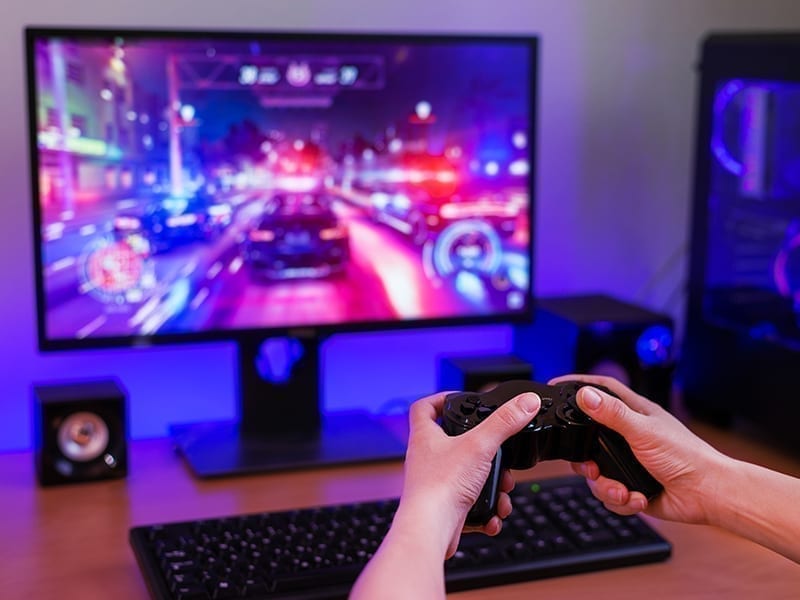With another list of 118 Chinese apps being banned in India last Wednesday, the PUBG ban is essentially the most trending since there were millions of users, mostly kids, on this gaming app across the country. There were approximately 35 million active users, especially the younger generation taking up more than ¾ th of this estimation. This comes as good news for both desi parents who were literally tired of asking their kids to stop remaining glued to their mobile screens for hours, and also for Indian game developers who now have the opportunity to innovate in this market. The active PUBG users have showcased their sadness over this ban, however, Indian parents are in the mood to celebrate.
The effect, addiction and obsession with this game have been well-known. For instance, back in 2018, a school in Bengaluru informed the parents to keep their children away from too much gaming after a 15-year-old boy started receiving treatment for his PUBG addiction. Sounds unreal, right? Read on to find out how as a parent, without receiving all that hate from your kids, you can prevent your child from spending all their time gaming and channel that energy in a healthier way.
Signs That Your Child Is Addicted To Gaming
Addiction to video games usually comes from the fact that the players consciously and subconsciously feel bound to complete a mission or beat a high score. Sometimes children can often love becoming a temporary character online, trying to escape from reality. For them, this can become a space where they feel the most accepted.
1. Emotional Symptoms
Some of the emotional symptoms which children start showing include:
- Feelings of restlessness and irritation when they are unable to play.
- A preoccupation with gaming thoughts.
- Lying to friends or family regarding the amount of time they spend playing online.
- Complete isolation from others in order to play games.
2. Physical Symptoms
Apart from the emotional symptoms, these are the following physical symptoms you should look out for in your child.
- Fatigue or tiredness
- Migraines due to intense concentration and strain on the eyes
- Extremely poor personal hygiene
- Carpal tunnel syndrome is caused by the overuse of a computer mouse or a controller.
5 Steps To Follow To Help Your Child Overcome Gaming Addiction
Like any other compulsive behaviour, video gaming addiction can also have severe consequences on children. Various short-term and long-term effects include losing out on academics, friends, finances, and even family time. So to prevent these from happening, parents must follow the below steps so that they can help their child channel their energy in a positive way.
1. Fix A Schedule For Your Child

As a parent and a guide, you need to explain to your children the importance of fixing a schedule. Help them understand that a timetable boosts productivity and helps in managing tasks. If your child is unable to make a timetable for themselves, help them in creating one. Fixing a schedule would help regulate time spent gaming and encourage them to make time for other activities. Do not try to absolutely cut off games from the very beginning. Make sure to tell them that if they complete their pending tasks, they will be allowed to play online for half an hour to 45 minutes.
2. Communicate With Him/Her

Don’t resort to scolding or ridiculing your child for being online for hours and playing video games. You need to understand that your children are growing up and are facing both psychological and emotional changes. Thereby, resorting to scolding won’t solve this problem. Instead, try communicating with your child. Have one-on-one conversations with them and make them understand the severity of the addiction. Reward good behaviour when they keep their gaming time in control and compliment them too.
3. Encourage Them To Go Out To Play

Gaming triggers adrenaline, but so do sports and outdoor activities. Encourage your child to play outside with a group of kids. It will feed similar emotions they experience while gaming like competitiveness, adrenaline, energy rush, and happy hormones. Replacing an engaging indoor activity with an outdoor activity that is just as exciting is a clever way to supplement their enthusiasm.
4. Start Monitoring Their Online Activities

Keep a check on your child’s web history. Monitor the sites they are visiting. You can also set up parental control on most devices and browsers nowadays, which makes it all the easier as a parent. Reserve control and unlock the game for regulated periods of time.
5. Help Them Cultivate A Passion

Many kids do genuinely enjoy and feel passionate about video gaming. They take pride in their wins and performance in this virtual world. Cultivating another passion can help them feel fulfilled and motivated in a similar manner. For example, if your child has shown interest in competitive swimming, horse riding, shooting, chess, music, or even art, help them get into a class that can truly hone their interest into a skill and give them the confidence they need. You can even engage your kid with storytelling and a good way to start this is with short tales like the Panchatantra stories.
Truth is, from Counter-Strike and Grand Theft Auto to Farmville and Candy Crush, there’s no doubt there’ll always be a virtual game that’s vying for your child’s attention. It’s important you focus on helping them develop passions they care about in the real world, enough that they do not wish to spend all their time playing video games, which could turn into a gaming addiction.

